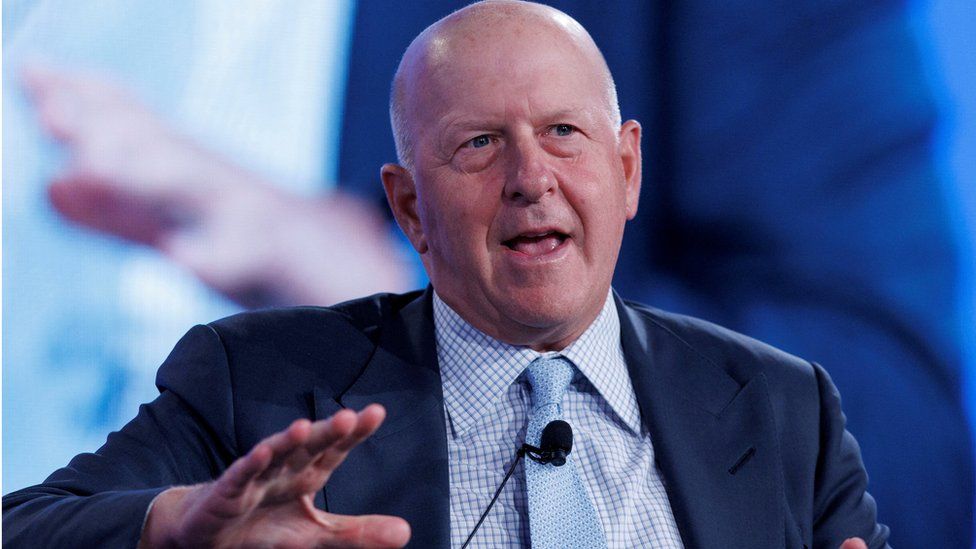Goldman Sachs starts massive round of job cuts
- Published

Investment giant Goldman Sachs has begun a massive round of job cuts around the world as it tightens its belt in the face of falling profits.
The cuts will affect up to 3,200 staff or roughly 6.5% of the bank's workforce, including staff in the UK.
The cuts are among the biggest made by banks this year as economic uncertainty puts lenders under pressure.
Goldman is also reviewing its expenses, including bonuses and the firm's purchase of two private jets.
The company ordered the planes in 2019, a reversal of the company's previous policy that raised eyebrows at the time.
"We're looking at expenses in every corner of the firm, so it's ridiculous to focus on any single segment or item," a spokesman told the BBC.
Goldman, which employs roughly 49,000 people worldwide and about 6,000 people in the UK, has already cut hundreds of jobs this year.
The moves follow a hiring surge, which has boosted headcount by roughly 10,000 people since December 2019.
In any given year, Goldman Sachs will typically let go of 3-5% of its workforce as part of what it calls its annual Strategic Resource Allocation. So getting rid of over 6% is a bigger cull than usual but the SRA is also conducted with market conditions in mind.
A lot of Goldman's revenue comes from advising on big mergers and acquisitions, and global deal-making fell very sharply in the last half of 2022 as the cost of debt to finance transactions rose after a decade close to zero as central banks lifted interest rates to fight inflation.
It is also very likely that many major economies will be slowing in 2023, so it is not surprising to see the belt-tightening at banks like Goldman set a couple of notches tighter.
Goldman insiders also point to staff-slashing at other companies after years of hiring frenzy - like Salesforce and Facebook parent Meta. Staff costs are high at Goldman (they pay their people very well!) but it also means it's the first cut when surgery is needed to keep the business profitable.
But in recent months, chief executive David Solomon has repeatedly raised concerns about the economic outlook, saying clients were being cautious and the environment was driving him to look at reducing costs.
Overall revenues at the bank dropped 20% in the first nine months of the year, compared to 2021 when business was booming. Profits fell even more sharply.
Morgan Stanley and Citigroup are among the other major banks to have trimmed staff in recent months as economic uncertainty rises and a market downturn puts a dampener on mergers and stock listings.
Mr Solomon, who joined Goldman in 1999 and took over as chief executive in 2018, has been under pressure to boost the investment giant's profitability and share price.
While arch-rival Morgan Stanley has gradually reduced its reliance on Wall Street trading and deal-making, Goldman's efforts to branch out have faltered.
In October the bank signalled it was stepping back from Marcus, the online bank focused on consumers that it launched in 2016.
Related Topics
- Published16 December 2022
- Published6 January 2023